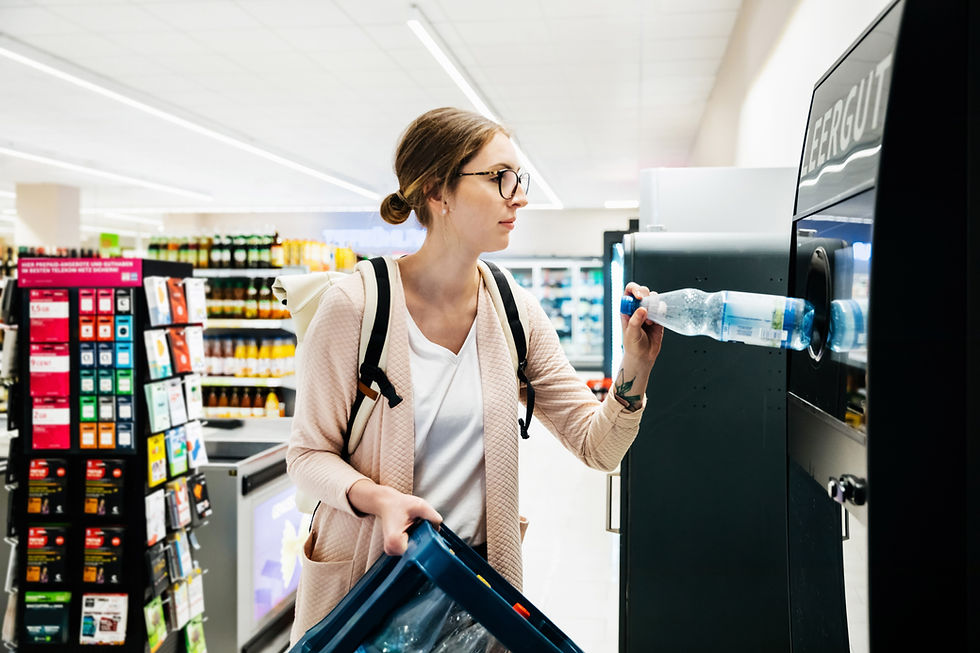"Practical Guide for Efficient Waste Management at Home: Reduce, Reuse and Recycle Successfully"
- nicoearth218
- 13 jun 2024
- 2 Min. de lectura
Correctly managing waste at home is essential to reduce our environmental impact and contribute to a cleaner and more sustainable planet. Below, we present a complete guide to help you manage your waste efficiently.

1. Waste Classification
Separation at Origin
The key to correct waste management begins with separation at source. This means sorting waste into different categories before disposing of it.
Organic: Food scraps, fruit and vegetable peels, coffee grounds, etc.
Recyclables: Plastics, papers, cardboard, metals, glass.
Non-Recyclable: Materials that cannot be recycled, such as certain types of plastic, diapers, candy wrappers.
Hazardous Waste: Batteries, chemicals, electronic products.
2. Recycling
Recyclable materials
Be sure to clean containers before recycling to avoid contamination.
Plastic: Bottles, containers, bags.
Paper and Cardboard: Magazines, newspapers, boxes.
Glass: Bottles, jars.
Metals: Aluminum cans, cans.
Recycling Points
Identify recycling points in your community. Many cities have specific recycling centers for certain materials, such as electronics and hazardous waste.
3. Composting
Organic Waste
Composting is an excellent way to manage organic waste. You can create a composter at home to convert food scraps and other biodegradable materials into natural fertilizer.
What to Compost: Fruit and vegetable scraps, coffee grounds, egg shells, dried leaves.
What Not to Compost: Meat, dairy products, oils, diseased plants.
4. Waste Reduction
Responsible consumption
Reducing waste starts with conscious consumption habits.
Buy in Bulk: Opt for products without packaging or with reusable containers.
Avoid Plastic: Use reusable bags, water bottles and food containers.
Meal Planning: Plan your shopping and meals to avoid food waste.
Reuse
Before throwing something away, think about whether you can give it a second use.
Containers: Use jars and bottles for storage.
Clothing: Donate or reuse clothing instead of throwing it away.
Furniture and Appliances: Repair or give away items before throwing them away.
5. Hazardous and Electronic Waste
Special Handling
Hazardous waste requires special management due to its potential environmental impact.
Batteries: Take them to specific collection points.
Appliances and Electronics: Recycle them in specialized centers.
Chemical Products: Do not throw them down the drain; Look for municipal collection points.
6. Education and Awareness
Inform and Educate
Waste management is a community effort. Educate your family and friends about the importance of properly separating and managing waste.
Educational Programs: Participate in local recycling and composting programs.
Communication: Share information and resources about waste management on social networks and with your community.
Community participation
Join local cleaning and recycling initiatives. Community collaboration can have a great impact on waste management at the local level.

Correctly managing waste at home is not only an environmental responsibility, but also a way to contribute to a more sustainable future. With these steps, you can reduce your impact, reuse materials, and recycle properly. Start implementing these practices today and you will see how little by little you will make a big difference in your home and community.
Nicoearth21 is committed to being part of the change.
If you want to find out about these topics, follow us on our social networks.








Comentarios